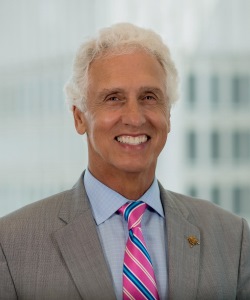Our Offices: Philadelphia, PA Moorestown, NJ

On Friday, February 22nd, the U.S. Court of Appeals for the D.C. Circuit heard oral arguments about President Trump’s decision to end the Deferred Action for Childhood Arrivals (DACA) program. DACA is an immigration policy that applies to certain individuals who entered the U.S. before age sixteen and are now in undocumented or illegal status. Under the program, the United States government can exercise its prosecutorial discretion to defer deportation or other action to remove the individual. DACA recipients are eligible for a work permit, social security number, and a driver’s license. The DACA policy was put into place under the Obama administration and requires that recipients do not have felonies or certain serious misdemeanors on their records, are enrolled or have graduated from high school or have served in and been honorably discharged from the United States military, and meet other specific requirements.
In September 2017, the Trump administration announced its plans to end DACA. At that time, then-Attorney General Jeff Sessions wrote a letter to DHS Acting Secretary Elaine Duke arguing that the program was created “without proper statutory authority” and directing DHS to execute an “orderly and efficient wind-down process” of DACA. Duke rescinded the program in a following memorandum.
On Friday, a hearing was held before a three judge panel consisting of Judges Thomas Griffith and Patricia Millett and Senior Judge Harry Edwards. The argument centered primarily on President Trump’s reasoning to end DACA, stemming from a memo by current DHS Secretary Kirstjen Nielson. Judge Griffith expressed frustration because Nielson’s memo was the first evidence of any reasoning by the Trump administration to end DACA. Judge Griffith observed that both Sessions’ letter and Duke’s memorandum were solely based on law and questioned “why it would take three bites of the apple before the type of reasoning that we’ve said for a long time needs to be apparent emerges to the floor.”
In the past, DACA rescission hearings have come before the Second, Fourth and Ninth Circuit courts. The Ninth Circuit ruled in favor of upholding DACA. The Second Circuit has yet to make a decision. Last year, U.S. District Judge John Bates said that Trump’s proposed termination of DACA was “arbitrary and capricious” and ruled it an unlawful violation of the Administrative Procedure Act.
If you or someone you know is a DACA recipient interested in renewing their status, questions about the program, or needs legal assistance on any other immigration matters, contact Leonard Sciolla and ask to speak with Attorney Paul Schultz.












